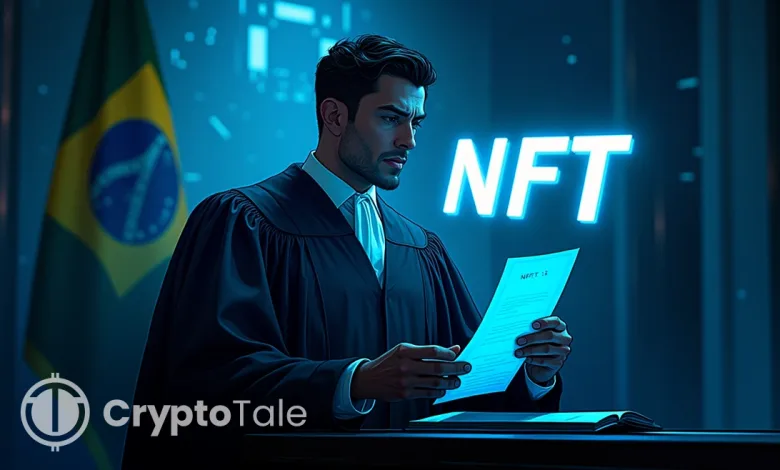NFTs for Legal Notices: Brazil’s Bold Crypto Court Move

- Brazilian court authorizes NFTs to notify unidentified defendants in a Bitcoin pyramid case.
- NFTs are used to notify defendants linked to BWA Brazil’s missing $900M in Bitcoin.
- Court’s decision reflects legal adaptation to cryptocurrency challenges and blockchain tech.
A Brazilian court has approved the use of NFTs to serve legal notices to unidentified defendants in a Bitcoin-related disappearance case involving BWA Brazil. The company is alleged to have operated a pyramid scheme, where the firm used clients’ funds to purchase Bitcoin. This decision can be viewed as rather unconventional compared to other cases in the expanding field of cryptocurrency.
This lawsuit was filed by a legal representative of BWA Brazil’s bankruptcy estate following the company’s bankruptcy. To preserve creditors’ claims, the trustee sought to toll the statute of limitations on losses tied to the missing cryptocurrency. The court permitted the use of NFTs as a method of notifying anonymous defendants, with the tokens to be delivered to the relevant wallet addresses linked to the transactions.
The creditors claim that BWA Brazil fraudulently purchased 11,200 BTC (worth over $900 million) using misappropriated funds. These Bitcoins were later transferred to other wallets, complicating recovery efforts. The NFT-based notification system aims to address the challenge of serving legal notices to unidentified cryptocurrency holders.
The trustee’s request for NFT-based notification was supported by the Public Prosecutor’s Office. The court highlighted the importance of adapting legal processes to new technologies, particularly in cases involving decentralized assets. “Delays in the legislative process cannot further harm creditors who suffered multimillion-dollar losses,” the judge ruled. The decision allows the trustee to notify defendants effectively while preventing further legal setbacks.
Bitcoin Blockchain Enables Tracking
Technically, while the wallet of the users involved is anonymous, each transaction can be traced on the blockchain. This means that while the owners of these wallets are anonymous, their assets can still be traced. The trustee agreed with the fact that while some cross transactions happened through the centralized exchanges. The other cross transactions occurred through P2P, making it easier to be unidentified.
Related: X2Y2 NFT Marketplace to Shut Down, Shifts Focus to AI: Report
This ruling reflects an effort to develop new legal frameworks in response to the growing cryptocurrency industry. The fact that the court denied the traditional notification methods in favor of NFTs demonstrates that they are seeking new ways of dealing with this problem.
This approach could become more common as cryptocurrency continues to gain traction. It showcases how legal systems can evolve to address the complexities of blockchain technology and its impact on the financial world.




